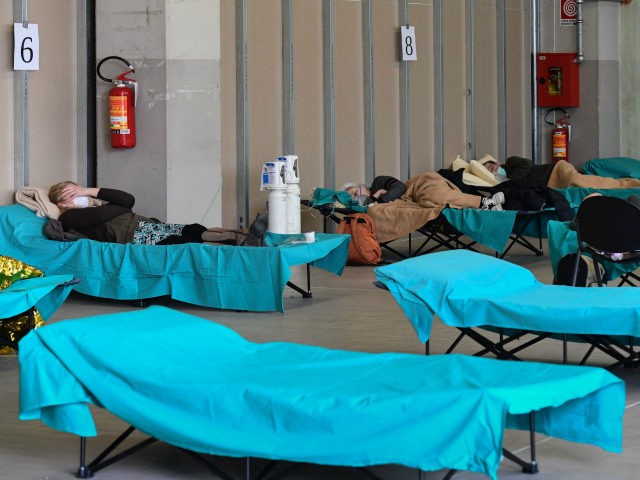Professor Mauro Ferrari, the European Union’s top scientist, has resigned as president of the European Research Council after criticising the political bloc’s response to the Wuhan coronavirus.
Professor Ferrari submitted his resignation to European Commission President Ursula von der Leyen on Tuesday saying: “I have been extremely disappointed by the European response to COVID-19.”
The senior scientist explained what he’d seen at the heart of Europe during the worst public health crisis in decades has been enough to turn him, a “fervent supporter” of Brussels, into a near Eurosceptic. He continued: “I arrived at the ERC a fervent supporter of the EU [but] the COVID-19 crisis completely changed my views, though the ideals of international collaboration I continue to support with enthusiasm,” Ferrari told the Financial Times.
Ferrari, who only began his four-year term as president of the ERC in January, told the newspaper that he began disagreeing with the EU leadership in March.
The major disagreement centred around Ferrari’s proposal, which was rejected by the ERC, to fund a programme deemed to be directed by EU leaders, rather than led by scientists and researchers. The ERC said it would only fund “bottom-up” projects, rather than “top-down” programmes with centralised objectives.
Prof Ferrari, who was a prominent cancer researcher in the U.S., said of the EU’s decision: “I argued that this was not the time for scientific governance to worry excessively about the subtleties of the distinctions between bottom-up versus top-down research.”
Ferrari would go on to consult with President von der Leyen, but according to the professor, the cooperation between the two was not met with enthusiasm. “The very fact that I worked directly with her created an internal political thunderstorm,” he noted. He described how his proposal disappeared into the various layers of the European Commission administration, “where I believe it disintegrated upon impact”.
He then went on to decry what he labelled, “the complete absence of coordination of healthcare policies among member states, the recurrent opposition to cohesive financial support initiatives, the pervasive one-sided border closures”.
The European Union’s response to the coronavirus pandemic in Europe has been the subject of criticism among many, such as when President von der Leyen insisted that the internal Schengen Agreement borders remain open in mid-March.
Just days later, she admitted the European Union had “underestimated” coronavirus saying: “I think we all, who are not experts, initially underestimated the coronavirus. But in the meantime it has also become clear that this is a virus that will keep us busy for a long time.”
European leaders would go on to close the bloc’s external border, banning all travel from countries outside of the EU for 30 days.
The Chinese virus has hit Italy the hardest in Europe and, as of Tuesday, resulted in over 17,000 fatalities in the member-state. As a result, the country expresses the harshest criticism for the EU’s leadership.
Italian politicians in various parts of the country have removed European Union flags from offices and public spaces, while members of the public have taken to social media to burn EU flags.
The backlash led to President von der Leyen writing a letter of apology to the Italian people that was published in the newspaper La Repubblica last week.
“It must be acknowledged that in the first days of the crisis, faced with the need for a common European response, too many have thought only of the problems of their own homes,” she said and added: “They did not realise that we can defeat this pandemic only together, as a Union. It was malicious behaviour and could have been avoided.”
A poll of the Italian public released on March 30th revealed that just 49 per cent felt “pro-European” in the wake of the coronavirus outbreak, down from 68 per cent before the crisis.

COMMENTS
Please let us know if you're having issues with commenting.